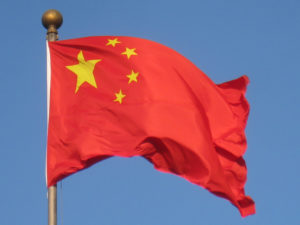Use the comments on this post to discuss topics not related to recent posts.
Month: August 2019 Page 1 of 3

Queen Elizabeth II
I wrote and published a piece about this briefly, and I realized I was wrong, so I took it down.
Johnson has prorogued (suspended) Parliament from about the 11th of September. It’s clearly a maneuver intended to make Brexit more likely, and shady as hell.
Under the Westminster tradition, Parliament is supreme. Not the Prime Minister.
Some years ago in Canada, Prime Minister Harper prorogued to avoid a vote of no confidence (which would have toppled the government and triggered an election). That was clearly against the unwritten rules of the Westminster tradition. When the Queen’s representative, the Governor General allowed it, she failed her duty.
I originally thought the Queen had done the same thing, and if she had, I’d want her–and the royal family–gone. They have a duty, they need to do it.
But, as Parliament will be in session for long enough to allow a vote of no-confidence (if MPs want to do one), I find this act, while clearly shady and abusive, just barely on the right side, and I can understand why the Queen let it happen.
If Parliament doesn’t want this to happen, they have plenty of time to make sure it doesn’t. If they don’t prevent it, this means they aren’t willing to topple the Conservative government. That is on them, they know the consequences.
This is back in the hands of Parliament, where it should be.
The results of the work I do, like this article, are free, but food isn’t, so if you value my work, please DONATE or SUBSCRIBE.
Days after Seoul scrapped intelligence-sharing with Japan, all branches of its military descended on a handful of disputed islets for two-day drills, raising ire in Tokyo and fueling a brewing trade conflict between the neighbors.
 The basic truth is that the days of the Pacific being an American lake are coming to a close. China is the 800 pound gorilla. As Yang Jiechi said, “China is a big country and other countries are small countries, and that’s just a fact.”
The basic truth is that the days of the Pacific being an American lake are coming to a close. China is the 800 pound gorilla. As Yang Jiechi said, “China is a big country and other countries are small countries, and that’s just a fact.”
So if the small countries don’t want to be ruled by China the way that Canada, Mexico, and most South and Central American countries are, they need to work out their differences and band together.
That is especially true for the two most powerful countries after China: Japan and South Korea.
If they can’t, well, welcome to vassalage as the Middle Kingdom rises.
The results of the work I do, like this article, are free, but food isn’t, so if you value my work, please DONATE or SUBSCRIBE.
Week-end Wrap – Political Economy – August 25, 2019
by Tony Wikrent
Economics Action Group, North Carolina Democratic Party Progressive Caucus
Strategic Political Economy
Give No Heed to the Walking Dead
[The Scholar’s Stage, via Naked Capitalism 8-18-19]
The People’s Republic of China is wealthier than any rival America has faced. Its leaders are convinced of the malignance of the United States. Their ambitions are global, their ideology hostile, and their military forces optimized to “fight and win wars” with America and the democratic nations that surround it. The challenge is daunting—and it exists because of us. The Sino-American relationship of 2019 is the acrid fruit of “engagement.”
Engagement is dead. Yet like dead growth lumped to living branch, the men and women who crafted the disaster linger with us. In twitter whispers and podcast chatterings their murmurs grow. Engagement did not fail, we hear. It never was about remaking China in the first place. We never thought the Chinese would come to share our systems, values, or priorities. Engagement was about something else entirely….
Here is Bill Clinton, explaining to the American voters why the People’s Republic deserves a seat at the W.T.O.:
By joining the W.T.O., China is not simply agreeing to import more of our products. It is agreeing to import one of democracy’s most cherished values, economic freedom. The more China liberalizes its economy, the more fully it will liberate the potential of its people — their initiative, their imagination, their remarkable spirit of enterprise. And when individuals have the power, not just to dream, but to realize their dreams, they will demand a greater say….The broader problem with the Haas formula (“shape what China does”) is that China’s political behavior cannot be divorced from the economic and political structures that produce it. As China’s newest white paper eagerly reminds us, demanding the PRC reform its SOEs is demanding that it transform the fundamentals of its government, of which those SOEs are a critical part. Asking them to dismantle mercantilist policies and halt IP theft is asking them to abandon the economic model (what Xi would call “the path of socialism with Chinese characteristics”) that their social system (in the Marxist tinged theory of the CPC, China’s social “superstructure”) is built upon. Dialing down the ambitions and capabilities of the PLA would have meant dismantling a keystone of Party ideology, identity, and organization.
The Population Bust: Demographic Decline and the End of Capitalism as We Know It
Foreign Affairs, via Naked Capitalism 8-18-19] Not paywalled.
Use this thread to discuss topics not relevant to recent posts.
 I’ve been writing online for 17 years or so, if you don’t include forums, in which case it’s 25 or so.
I’ve been writing online for 17 years or so, if you don’t include forums, in which case it’s 25 or so.
And I’ve never known how to say this.
We’re really fucked up. Really. We’re cruel to each other in ways that just aren’t needed. We have more houses than homeless, enough food to feed the hungry. More than enough.
It’s crazy. Just crazy.
We have enough resources to fix our environmental and climate problems. Building and neighbourhoods can be made into net positives. We can, as humans, make ourselves a positive for life as whole.
We can fix this shit.
There are always going to be problems. There is pain beyond imagining that is possible in human existence (visit a burn clinic if you don’t believe me. Or just believe me, ’cause I’ve fucking been there.)
But basically, we can make this into a near paradise any time we get serious about it, just by adhering to the rule of always creating more good than evil, and not tolerating those who tolerate evil.
There’s plenty of complexity to it, aye. But at its heart, it easy. Don’t let people do evil, do more good than evil.
Some of us are so totally broken we don’t–we can’t–get this, but it’s this simple.
Create more good than evil, and this place, despite being, shall we say, metaphysically shitty (we eat each other, and that’s true even if you’re a vegan), would be heavenly.
I just don’t know how to get this across to people. I just don’t.
Don’t burn down forests. Don’t be cruel. Do good. Don’t do bad. You know what such things are.
You do.
And I, and others, shouldn’t have to be screaming “Don’t do fucking evil!” as the world moves towards apocalypse.
The results of the work I do, like this article, are free, but food isn’t, so if you value my work, please DONATE or SUBSCRIBE.
The Amazon goes, we go. This map doesn’t make it seem like it’s in danger, though it’s bad, but…
So many #Climate emergencies worldwide, it’s hard to keep up. But #AmazonRainforest burning is stand-out global disaster.
Every red dot below represents a significant fire pic.twitter.com/AZ6IaOO1Pv— John Gibbons (@think_or_swim) August 21, 2019
The Intercept has an excellent article on what the Amazon does, and what its loss would mean, but the simple facts are two:
- Loss of another fifth of the Amazon, many scientists believe, would trigger a “dieback” causing the rest to die quickly.
- Loss of the Amazon would release as much carbon into the atmosphere as all human activity since 1880.
What this means is a doomsday scenario. There are scenarios where not only humans, but all higher life dies, and this stands a good chance of being one of them: an uncontrollable increase of ten degrees Celsius or more.
We don’t survive that.
There are claims, which I find credible, that most of these fires were set deliberately by ranchers.
The Amazon is being deforested to create ranches, to sell beef to the rest of the world.
The obvious solution is for the rest of the world to simply pay Brazil more than the meat is worth to stop deforesting and to reforest. Any such treaty must have teeth– independent verification by auditors, NASA, and so on. And if the treaty is broken, not only does the money stop, but severe punishment is levied on Brazil. I hate that, but I don’t see a way around it. This sort of thing must stop. At the very extreme end, if we’re going to go to war over anything, this would be it, but despite what I wrote earlier, that wouldn’t be necessary: serious threats from the US and China would make Bolsonaro crumble. They could destroy Brazil’s economy tomorrow.
The general problem is larger, very difficult, and everyone’s problem. There have been such huge fires in the Pacific Northwest the last couple years that people had to stay indoors for weeks. Those fires weren’t deliberately set (though some were caused by human carelessness), but the problem is bigger: The southern part of those rainforests are no longer viable as rainforests. They’re going to go.
In general, we need to be re-greening.
A new study shows that the earth stopped getting greener 20 years ago.
Declining plant growth is linked to decreased moisture — a consequence of climate change.
The impacts of the climate crisis are expansive.
They must push us to act now. https://t.co/vXeU02gahq
— Rep. Joe Neguse (@RepJoeNeguse) August 21, 2019
We also need to do it smart, as too much replanting happens under conditions that amount to plantations: Monocultures which don’t have the full benefit of proper forests. (A good book to read for background is The Hidden Lives of Trees.
To further emphasize the issue, more long term…
speaking of forests pic.twitter.com/CLa25bxdXu
— Deem (@DeemTheDreem) August 21, 2019
Some parts of this problem are genuinely difficult but others aren’t. We can certainly re-green, and even re-green relatively quickly. Some things, like the temperate rain forest of the Pacific Northwest may not be saveable, but re-greening is.
The second thing we need to do is to help the oceans. We need alternatives to fished seafood, and we need them now, and we need to get after bad actors hard (like, but not exclusively, Japan). The key issue here is phytoplankton, which are responsible for perhaps 50 percent of the world’s oxygen, and which are in sharp decline.
This is a truly difficult problem and I won’t pretend it isn’t. But we must do what we can and treat it as the emergency it is.
As I wrote yesterday, we have a ton of problems, we have a ton of money which can’t find anything to do, and somehow we aren’t putting that money to use doing what needs to be done.
This is a question of political will, and so far, we don’t have any. Bolsonaro wants to do the exact wrong thing and reduce the Amazon faster. Obama bragged about increasing fracking massively. We aren’t, as a species or world society, taking these problems seriously, and they are potentially existential problems. Even if they aren’t existential (and I’d rather not risk it, thanks), they will certainly kill billions.
Perhaps we should do something.
Now.
The results of the work I do, like this article, are free, but food isn’t, so if you value my work, please DONATE or SUBSCRIBE.
 Alright, so Germany has now introduced a zero interest bond. That means, given inflation, people will get back less effective money than they started with.
Alright, so Germany has now introduced a zero interest bond. That means, given inflation, people will get back less effective money than they started with.
At this point, outside the US, the average interest rate is negative.
That means that capitalists and banks, including central banks, have failed. It is their function, in a capitalist society, to allocate resources. Money represents resources: people, stuff, and land.
Now if we lived in a utopia, with no real problems, this would make sense, but we don’t. There are tons of real problems which need solving, lots of money floating around, and other capacity indicators show there are people and resources which are not being used, or which could be redeployed.
So capitalism is failing to do what it’s supposed to do, and so are capitalists.
The correct action in a situation like this is to get that money working. The government could borrow it massively, and do what needs to be done. It could (and I would suggest this is the better option) tax it away, and then spend it.
If capitalists absolutely insist on private enterprise doing the work, then they should massively raise taxes on any income or capital gains not used productively, and not count less productive things like loans–they should stipulate that the money must be invested into business activity. They should make stock option grants, stock buy-backs, and all similar activities intended to allow cash-outs impossible. They should get rid of private equity; just make it illegal. Almost all of its activity destroys viable business to create a pay day for a few people.
Heck, you should do away with all those things anyway.
People are very confused about profit. Profit is mostly socially constructed. It is not an independent variable. Taxes, laws, and regulations determine what is profitable and what isn’t. Billions of subsidies, tax breaks, and favorable land deals make extraction industries profitable, for example. Banks get to print money. Media companies like Disney rely on characters and ideas which, in the past, they would long have lost control over. Companies are allowed to pollute for free, to use vast amounts of water for nominal prices, and so on.
Meanwhile, a vast array of regulations and nickel and dime costs makes it impossible for small business to compete. Try starting a bank. Yeah, good luck with that.
This, too, is by design. Before Reagan, regulations were set up to make small businesses easier to start and keep running.
The point is that if investors can’t find anything in which to invest, government has failed to tweak profits correctly. You shouldn’t get rich in land speculation unless you’re building stuff that should be built. You should get rich in alternative energy, but mostly you don’t. You should get rich in making homes that are healthy and energy neutral, but instead we keep building unhealthy and environmentally-degrading housing.
You should make money rebuilding infrastructure, or building high speed trains, or reducing carbon, or reforesting, or making fish and phytoplankton stocks recover.
Yet, you don’t, so these things which need to be done in order to, like, avoid a few billion deaths, don’t get done.
That’s government failure.
Capitalism does not work without effective government control, if it is the dominant economic mode in a society.
So. We have lots of stuff that needs to be done. We have lots of resources and money which aren’t doing those things and, indeed, resources and money which apparently can’t find anything to do
Only a moron can’t look at those facts and know what to do.
Oh, and the 2008/9 bailouts made this situation far, far worse than it should have been. This endless printing of money is only to keep the useless rich afloat when they serve no useful, productive function. They are actually counterproductive, as they are actively stopping productive activity from happening.
Tax them. Stop propping them up and let incompetents die. Destroy, utterly, those members of the ruling class who are actively destructive, like Private Equity. Alter the rules so that productive activity is profitable, and while you’re doing all that, just have governments do the most important stuff themselves, with negative real interest rate loans.
None of this isn’t obvious to anyone who pays any attention.
Yet we don’t do it, because governments have been captured by failed rich people.
Normal. But not acceptable when the cost of inaction could be billions of dead people.
The results of the work I do, like this article, are free, but food isn’t, so if you value my work, please DONATE or SUBSCRIBE.
